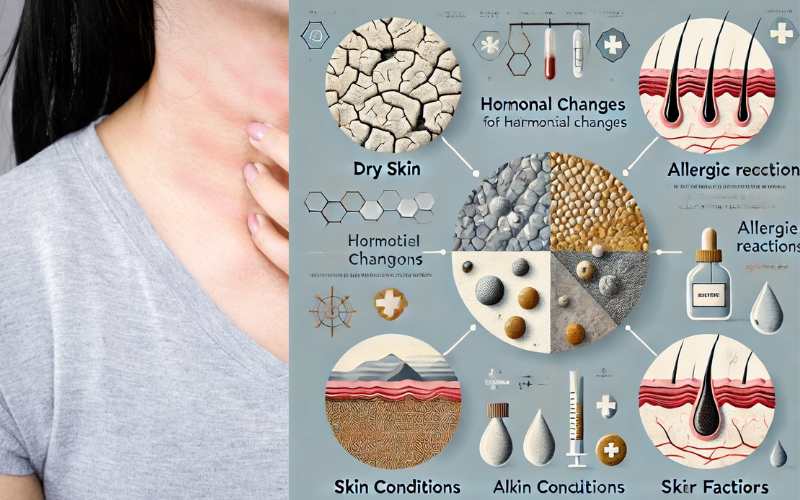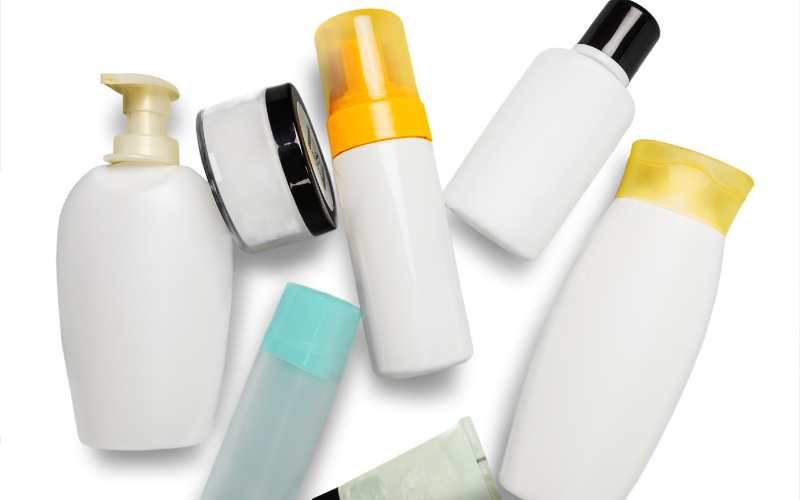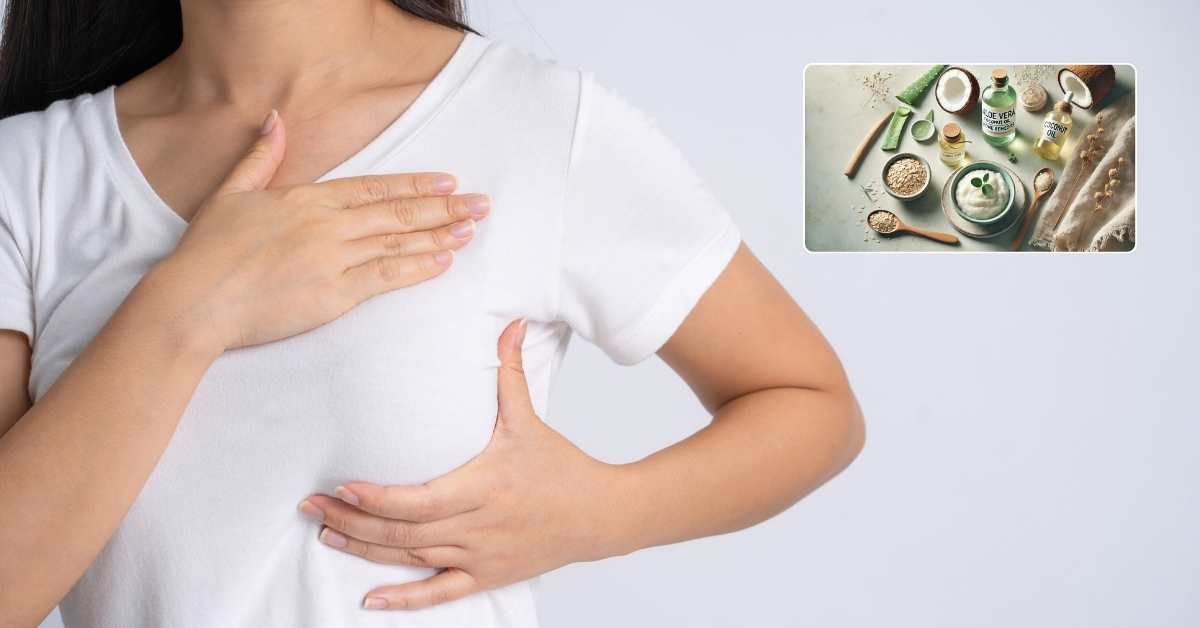Itchy nipples can be an uncomfortable and sometimes embarrassing issue that many people experience. This irritation can stem from a variety of causes, ranging from something as simple as dry skin to changes in hormone levels, allergic reactions, or even certain skin conditions. For some, the itching may be mild and occasional, while for others, it may be more persistent and bothersome.
Fortunately, there are several effective home remedies that can provide relief from itchy nipples without the need for medical intervention. These natural solutions, many of which use ingredients already in your home, can help soothe the skin, reduce inflammation, and restore comfort. In this article, we’ll explore these remedies, offer preventative tips, and explain when it might be time to consult a healthcare professional.
Key Takeaways:
✅ Understanding the reason for itchy nipples helps in finding effective remedies.
✅ Aloe vera, coconut oil, and cold compresses can relieve itching naturally.
✅ Hydrate skin, wear breathable fabrics, and use hypoallergenic products to prevent irritation.
✅ Persistent symptoms or unusual discharge warrant a doctor’s visit.
✅ Scratching can worsen irritation; opt for soothing remedies instead.
Causes of Itchy Nipples
Understanding the causes of itchy nipples can help you choose the right remedies and preventive measures.

Here are some common reasons why you might be experiencing nipple irritation:
1. Dry Skin
Dry skin is one of the most frequent causes of itchy nipples. When the skin lacks moisture, it can become rough, flaky, and prone to itching. Cold weather, low humidity, and frequent use of harsh soaps can strip the skin of its natural oils, making it dry and uncomfortable.
2. Hormonal Changes
Hormonal shifts, such as those that occur during menstruation, pregnancy, or menopause, can lead to changes in the skin’s sensitivity and moisture levels. These fluctuations may cause the nipples to feel itchy and sensitive. Pregnant women, for example, may experience nipple itching as the skin stretches and adjusts to hormonal changes.
3. Allergic Reactions
Sometimes, the materials we come into contact with can irritate the skin, especially sensitive areas like the nipples. Allergic reactions can occur due to fabrics, laundry detergents, lotions, or perfumes. Synthetic fabrics or harsh chemicals can cause redness, itching, and discomfort.
4. Skin Conditions
Certain skin conditions, such as eczema, psoriasis, or dermatitis, can also lead to itchy nipples. These conditions cause inflammation, which may result in patches of dry, itchy, or flaky skin. If you have a history of these skin issues, it’s possible that your nipples may also be affected.
5. Other Factors
Additional factors, like excessive sweating, friction from tight clothing, or infections such as fungal or yeast infections, can also lead to nipple itching. For breastfeeding mothers, nipple itching may be caused by dryness, irritation, or thrush, a common fungal infection.
By identifying the cause of your itchy nipples, you can better understand which home remedies may work best for you and when to take extra precautions. Next, we’ll look at simple yet effective remedies to help relieve this discomfort.
Effective Home Remedies for Itchy Nipples
If you’re dealing with itchy nipples, these home remedies can provide relief using natural ingredients and gentle methods.

Here are some tried-and-true options:
1. Aloe Vera Gel
Aloe vera is known for its soothing and moisturizing properties, making it an ideal remedy for skin irritation. It provides relief from itching while also helping to reduce inflammation.
- How to Use: Apply a small amount of pure aloe vera gel directly to the affected area. Let it sit for about 15-20 minutes, then rinse with lukewarm water. Repeat as needed, but be sure to use pure aloe vera to avoid any additional irritation from additives.
2. Coconut Oil
Coconut oil is highly moisturizing and contains natural antifungal and antibacterial properties. It helps to hydrate the skin and create a protective barrier, which can reduce itching.
- How to Use: Gently massage a few drops of virgin coconut oil onto the nipples and surrounding skin. Let it absorb fully; there’s no need to rinse it off. Apply twice daily for best results.
3. Cold Compress
A cold compress can reduce itching and numb any discomfort, especially if the itchiness is caused by inflammation or irritation.
- How to Use: Wrap a few ice cubes in a clean cloth and press it gently on the nipples for 5-10 minutes. Avoid applying ice directly to the skin. Use this remedy several times a day to soothe itching.
4. Olive Oil or Vitamin E Oil
Both olive oil and vitamin E oil are rich in antioxidants and have excellent moisturizing properties, which can help calm dry, itchy skin and promote healing.
- How to Use: Apply a few drops of olive oil or vitamin E oil directly to the nipples and gently massage in a circular motion. Allow it to absorb naturally. Repeat this process once or twice daily.
5. Oatmeal Bath
Oatmeal is well-known for its skin-soothing abilities. It can help relieve itching and reduce irritation caused by dry or sensitive skin.
- How to Use: Add a cup of finely ground oatmeal to warm bathwater. Soak in the oatmeal bath for 15-20 minutes, making sure the affected area is submerged. Rinse with clean water afterward. This can be done a few times a week to provide lasting relief.
6. Avoiding Irritants
Certain fabrics, detergents, and skincare products may worsen nipple itching. Opt for hypoallergenic products and wear soft, natural fabrics like cotton to prevent further irritation.
- Tip: Switch to fragrance-free and dye-free laundry detergents, and avoid wearing tight or synthetic clothing that may rub against the skin and cause friction.
7. Baking Soda Paste
Baking soda has mild anti-inflammatory and soothing properties, which can help alleviate itching when applied to the skin.
- How to Use: Mix one teaspoon of baking soda with a small amount of water to form a paste. Apply it gently to the nipples and leave it on for 5-10 minutes before rinsing with warm water. Use this remedy once a day until the itching subsides.
These home remedies are gentle and effective ways to manage and relieve itchy nipples. Remember to patch-test any new remedy on a small skin area first, especially if you have sensitive skin, to avoid any unexpected reactions.
Preventative Measures
Taking preventative steps can help you avoid the discomfort of itchy nipples in the future. Here are some simple but effective ways to reduce the likelihood of experiencing nipple irritation:
1. Maintain Skin Hydration
Keeping the skin well-moisturized is essential for preventing dryness and itching. Hydrated skin is less likely to crack, flake, or feel irritated.
- Tip: Use a fragrance-free, hypoallergenic moisturizer daily, especially after showering, to lock in moisture and keep your skin healthy.
2. Choose Hypoallergenic Products
Some skincare products contain fragrances, dyes, or chemicals that can irritate sensitive skin. Opting for hypoallergenic products can reduce the risk of an allergic reaction.

- Tip: Look for soaps, lotions, and laundry detergents labeled as fragrance-free, dye-free, and hypoallergenic. This minimizes your skin’s exposure to potential irritants.
3. Wear Loose-Fitting Clothing
Tight or synthetic clothing can rub against the skin and cause irritation, especially if you are prone to sweating. Loose-fitting, breathable fabrics allow your skin to breathe and minimize friction.

- Tip: Choose natural fabrics like cotton, which are soft on the skin and allow air circulation to reduce sweating and irritation.
4. Practice Good Hygiene
Good hygiene helps keep the skin around the nipples clean and free from irritants that may build up throughout the day.
- Tip: Gently cleanse the area daily with a mild, fragrance-free soap and warm water. Pat dry with a soft towel to avoid any rubbing or chafing.
5. Avoid Scratching
Scratching an itch may provide temporary relief, but it can also damage the skin and lead to more irritation. Over time, excessive scratching can even lead to infections.
- Tip: If you feel the urge to scratch, try applying a cold compress or moisturizer instead. Keeping your nails short can also help reduce the risk of skin damage if you do scratch.
Incorporating these preventive practices into your daily routine can help keep your skin healthy and reduce the chances of nipple irritation. However, if you find that itchy nipples are recurring or worsening despite these measures, it may be time to seek medical advice.
When to See a Doctor
While most cases of itchy nipples can be managed with home remedies and preventive care, sometimes the itching may indicate a more serious underlying issue. Here are some signs that it might be time to consult a healthcare professional:
1. Persistent Itching
If the itching doesn’t improve or worsens despite trying home remedies and preventive measures, it may indicate an issue that requires medical attention. Persistent itching can sometimes be a symptom of conditions like eczema, psoriasis, or an infection that needs treatment.
2. Discharge or Bleeding
Nipple discharge (other than breast milk) or bleeding is not a typical symptom of common skin irritation. If you notice any unusual discharge, it’s essential to get it checked out, as it could indicate an infection or, in rare cases, a more serious condition like Paget’s disease of the breast.
3. Redness, Swelling, or Pain
If your nipples or the surrounding skin become red, swollen, or painful, it may be a sign of an infection or inflammation that requires medical treatment. These symptoms can be associated with bacterial or fungal infections, which may need prescription medications to resolve.
4. Lump or Thickened Skin
The presence of a lump or thickened area of skin near the nipple should be evaluated by a healthcare provider. While it may be harmless, it’s essential to rule out conditions that could require treatment.
5. Itching During Breastfeeding
For breastfeeding mothers, persistent itching can be a sign of issues like thrush (a fungal infection) or a blocked milk duct. Consulting a healthcare provider can help you determine the cause and find safe and effective treatment options that won’t interfere with breastfeeding.
If you experience any of these symptoms, it’s best to consult a doctor to ensure proper diagnosis and treatment. Early intervention can prevent complications and address any underlying health concerns.
Frequently Asked Questions (FAQs)
1. Can itchy nipples be caused by hormonal changes?
Yes, hormonal changes, such as those during menstruation, pregnancy, or menopause, can lead to nipple itching. Fluctuations in hormone levels may affect skin sensitivity and hydration, which can cause itchiness and discomfort.
2. Is it normal for men to experience itchy nipples?
Yes, men can also experience itchy nipples due to causes like dry skin, allergic reactions, infections, or irritation from clothing. Many of the same home remedies and preventative measures apply to both men and women.
3. Are itchy nipples a sign of breast cancer?
Itchy nipples are usually due to less serious causes, such as dry skin or irritation. However, in rare cases, persistent nipple itching accompanied by symptoms like discharge, bleeding, or lumps can indicate conditions like Paget’s disease, a type of breast cancer. If you experience these symptoms, it’s best to consult a doctor.
4. Can breastfeeding mothers use home remedies for itchy nipples?
Yes, but it’s essential to choose remedies that are safe for both mother and baby. Mild, natural options like coconut oil or cold compresses are usually safe. However, it’s best to consult a healthcare provider for remedies if the itching is persistent, as it could be a sign of thrush or another issue related to breastfeeding.
5. What fabrics are best to wear if I have itchy nipples?
Natural, breathable fabrics like cotton are ideal, as they reduce friction and allow airflow to the skin. Avoid synthetic materials and tight clothing, as they can increase sweating and irritation, potentially worsening the itch.
6. Can scratching itchy nipples make the problem worse?
Yes, scratching may provide temporary relief but can actually make the itching worse and lead to skin damage or infection. It’s better to apply a soothing remedy, like a cold compress or aloe vera, to calm the itch without causing harm.


